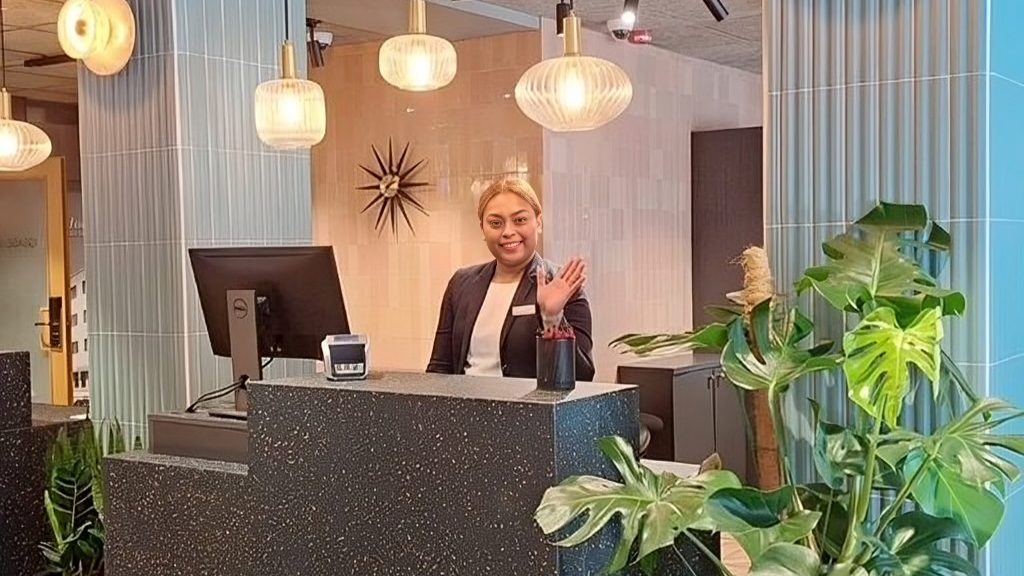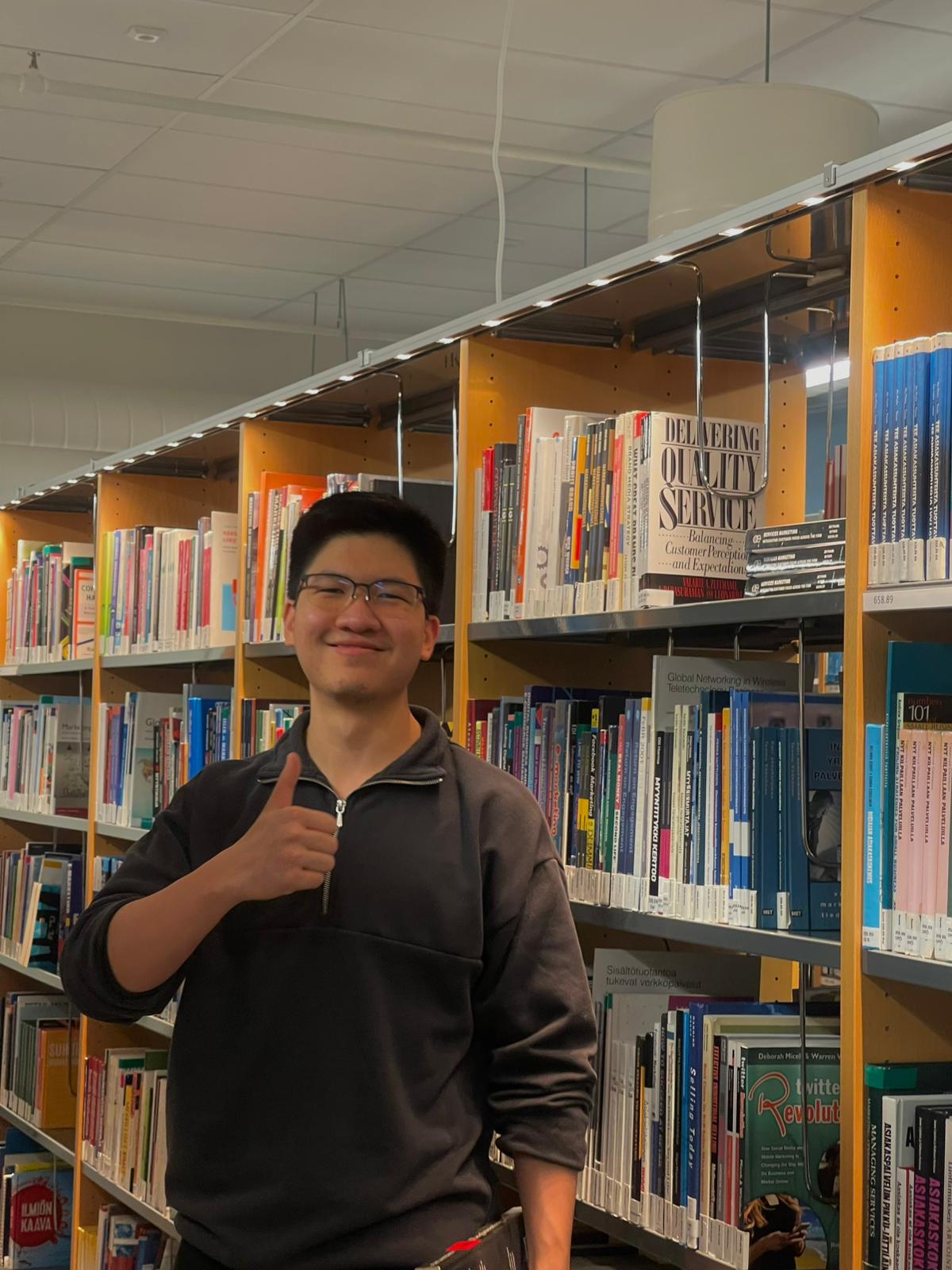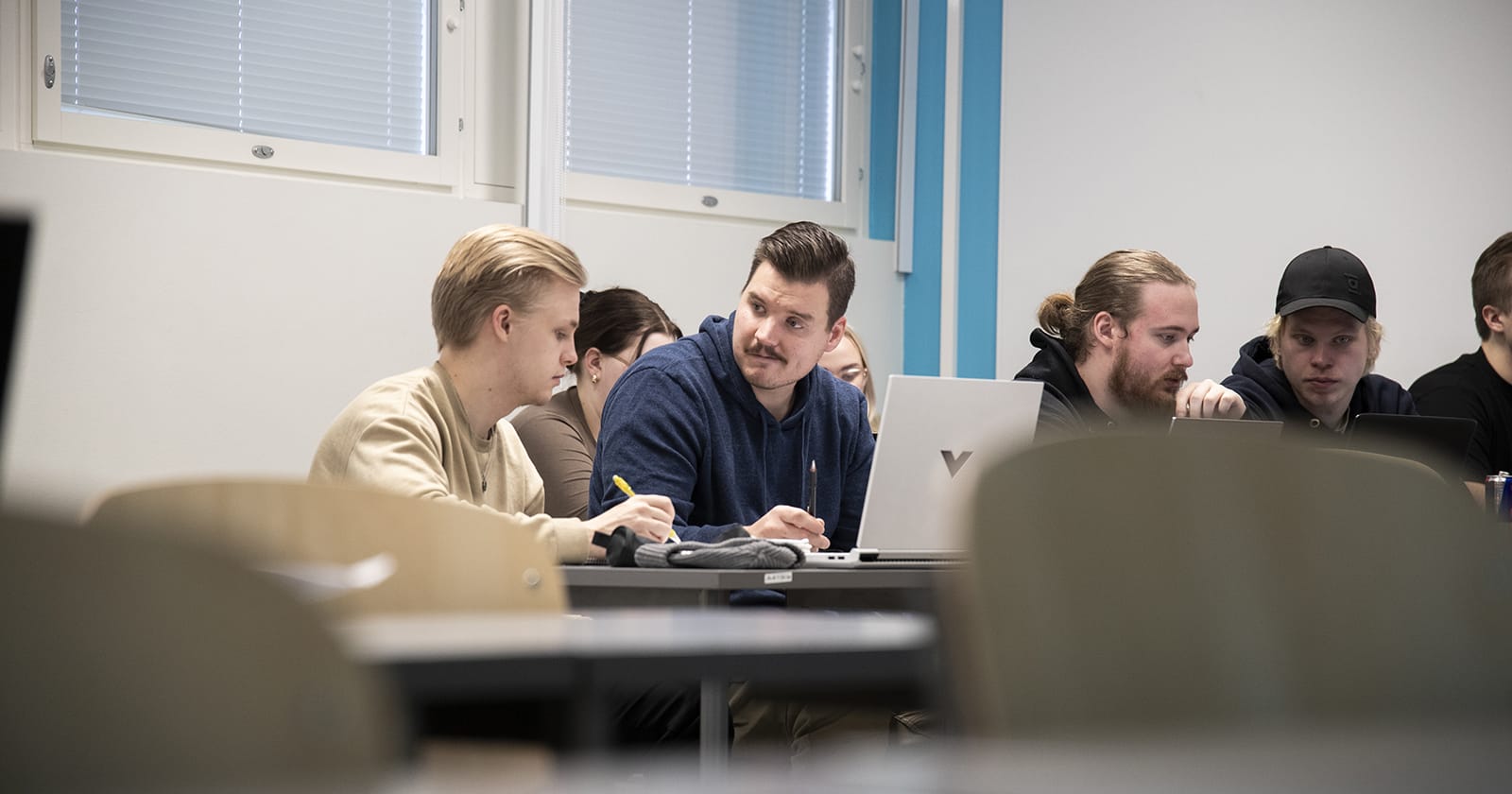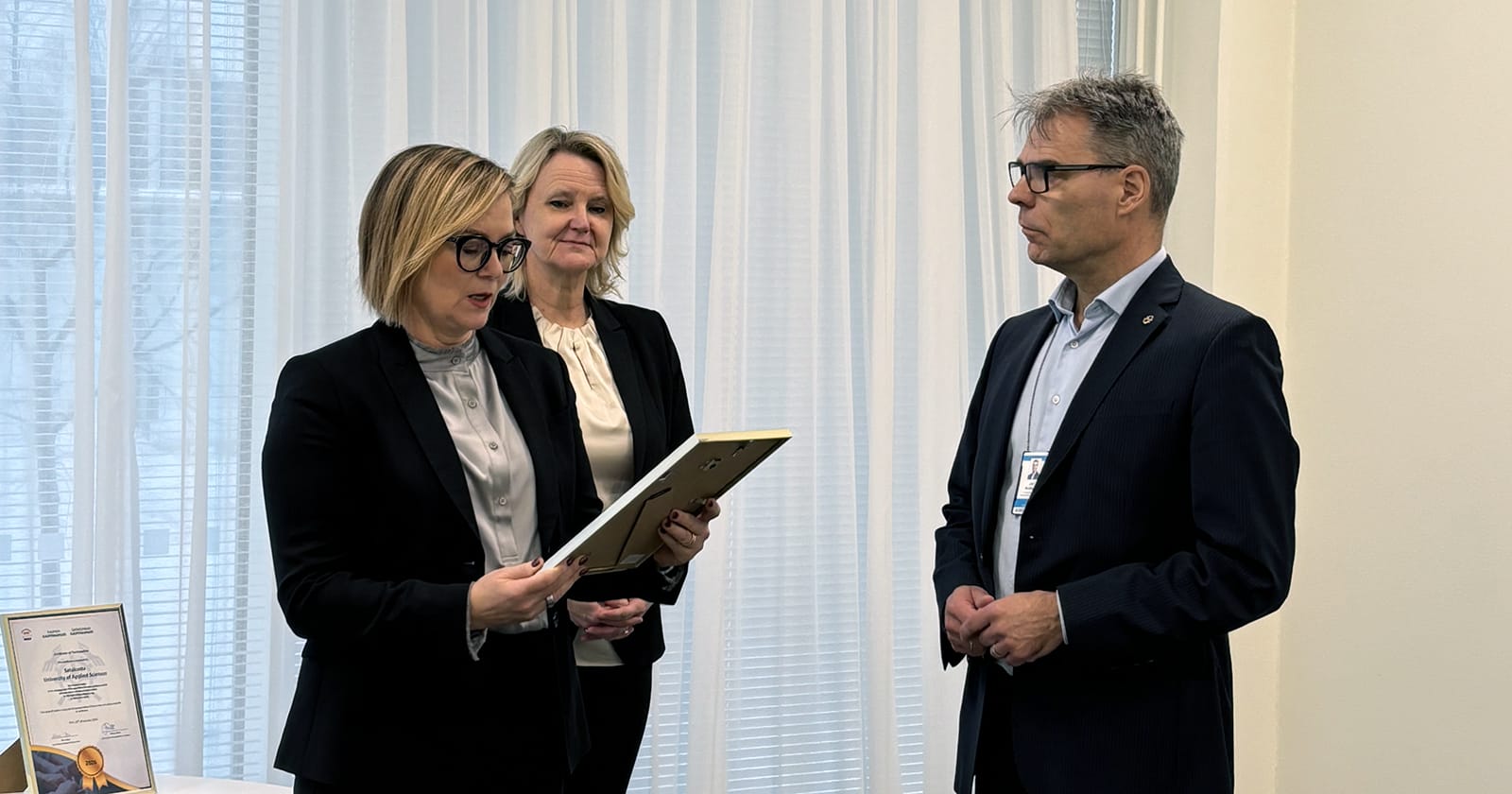The International Tourism Management degree programme at SAMK combines tourism management with business and international relations, preparing students to work in global and responsible tourism sectors.
Tina comes from Johor Bahru, Malaysia, where she spent the first 25 years of her life. Her life took an unexpected turn in 2007 when she moved to Finland after meeting her Finnish husband.
– Funny enough, I hadn’t even heard of Finland before meeting my husband, Tina admits.
Her relocation marked the beginning of an exciting journey in Satakunta.
Turning theory into practice at SAMK
Tina was among the first students in the International Tourism Development degree programme at Satakunta University of Applied Sciences (SAMK). Her decision to join the programme was driven by her passion for travel and sustainable development.
– This degree offers a blend of business, international relations, and tourism management, which aligns with my interest in tourism, Tina shares.
During her studies, Tina valued the hands-on approach of the programme, especially group projects that tackled real-life challenges such as environmental impact studies, community involvement, and economic sustainability. Memorable highlights included study visits to Saaremaa in Estonia, and Northampton University in the UK. These trips allowed Tina to experience first-hand how tourism strategies vary across cultural contexts.
Finding a job in Satakunta
Today, Tina works as a receptionist at Sokos Hotel Vaakuna in Pori. She secured this role through a practical training opportunity while studying at SAMK. In her daily work, Tina is responsible for welcoming guests, managing reservations, handling customer enquiries, and ensuring seamless coordination with various hotel departments.
– Providing excellent customer service and creating a friendly first impression are key aspects of my job, she explains.
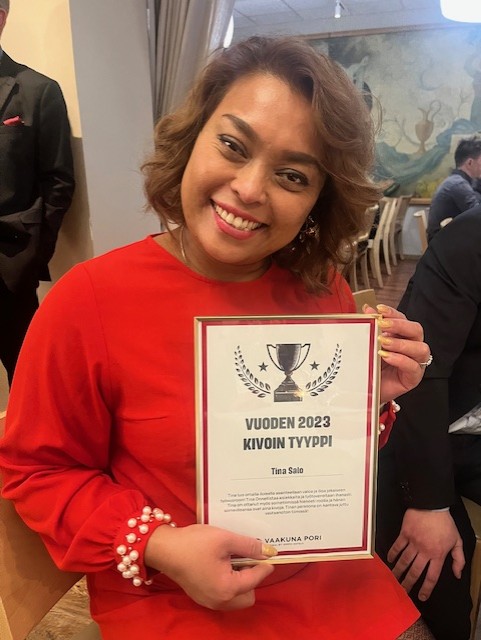
Practical skills and sustainability in action
Tina says her studies at SAMK equipped her with essential professional skills such as project management, effective communication, and stakeholder collaboration. These skills have proved particularly valuable in the hospitality industry, especially when dealing with international visitors and coordinating tourism services locally.
Her commitment to sustainability was further highlighted in her thesis, “Green Key Sokos Hotel Vaakuna Pori: Green Key Video for Employee Orientation,” where she created an educational video promoting sustainable practices within the hotel. This practical project emphasised her dedication to integrating responsible tourism into daily business operations.
Diverse career paths and strong industry connections
– Graduates from the International Tourism Development programme have a wide range of career possibilities. Many go on to work in destination management, tourism planning, and policy. Others find roles in hospitality management, event planning, or marketing for travel companies and as tour operators. There are also opportunities working with NGOs or international organisations to promote responsible tourism. Some graduates choose to pursue careers in consulting, research, or even start their own businesses, says Tina, reflecting on the career possibilities offered by her degree.
